The Visionary Path of Tegan and Sara, From Music to Memoir
Tegan and Sara revisit their past with memoir, High School, and album, Hey, I’m Just Like You, in an interview with Allison and Katie Crutchfield.
This cover interview originally appeared in She Shreds Magazine Issue #19, released December 2019.
For musicians and writers, there’s no motivational catalyst quite like nostalgia. We cannot access our imaginations without first crossing through the blurry hallways of the past. But sadly, the once seismic rattlings of our teenage antics generally begin to wane over the years into mere vibrations. It leaves us with only the pockmarks of first heartbreaks and a few hazy memories of real, unequivocal connection—like a severely scratched CD you find in a closet at your parents’ house.
For Tegan and Sara Quin—the twin siblings, visionary songwriters, and most recently, authors of their memoir, High School—the antidote for the irreparable fog of time happened to be each other. Well, each other and their natural compulsion to document everything, as well as extensive research and interviews. On their ninth and latest album, Hey, I’m Just Like You, Tegan and Sara revisit the first songs they ever wrote, sitting together on their respective bedroom floors in Calgary, taking turns playing their shared acoustic guitar.
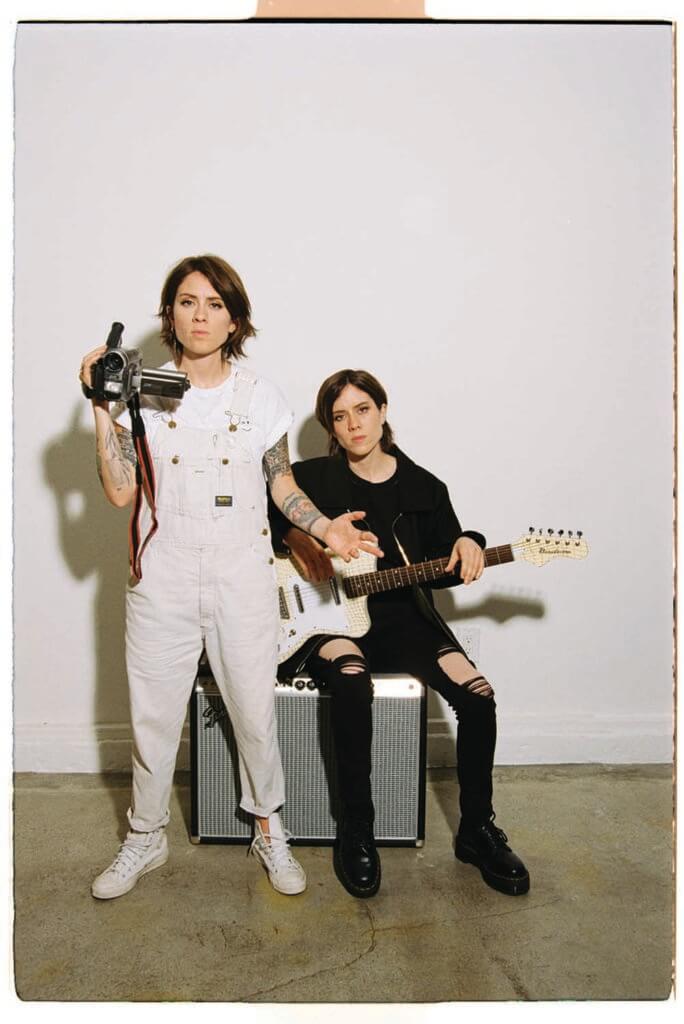
Katie Crutchfield: I have so many things I want to ask about the new record. It’s this really great convergence of all your previous records. It’s still dance pop, but it really invited guitar back into the mix. What led you to that choice?
Tegan: When we were writing the memoir, right away we dove into the music. After months of searching, we found two tapes with 40 songs on them, and I thought, like most people who listen to music they made as teenagers, that we would be horrified. But instead, I was really moved and blown away by the rawness. Sara said this a few weeks ago, and it really struck me: the narrative about young people, especially young women, is that we’re silly and underdeveloped. But here was a spark. We knew something was special about [those songs]. And for two decades, it was talked about how the early part of our career was us finding ourselves, flopping around in obscurity, unrefined. But I realized that really wasn’t true. In writing the book, looking at the videos, listening to songs, and reading my journals, I was really struck with how much of ourselves was already there. And how confident and sure of myself I was. I couldn’t write these songs now because I would never be so raw or honest. The plain speech was so remarkable to me. We had to make a record of these songs.
And so, to answer your question about production: we couldn’t make them sound like new pop Tegan and Sara. We needed to go back, play, and record these songs like we would have back then—but with the experience we have now. It’s not a nostalgia record. It’s an homage to that time, and it was important that Tegan and Sara from 1997 would not be horrified.
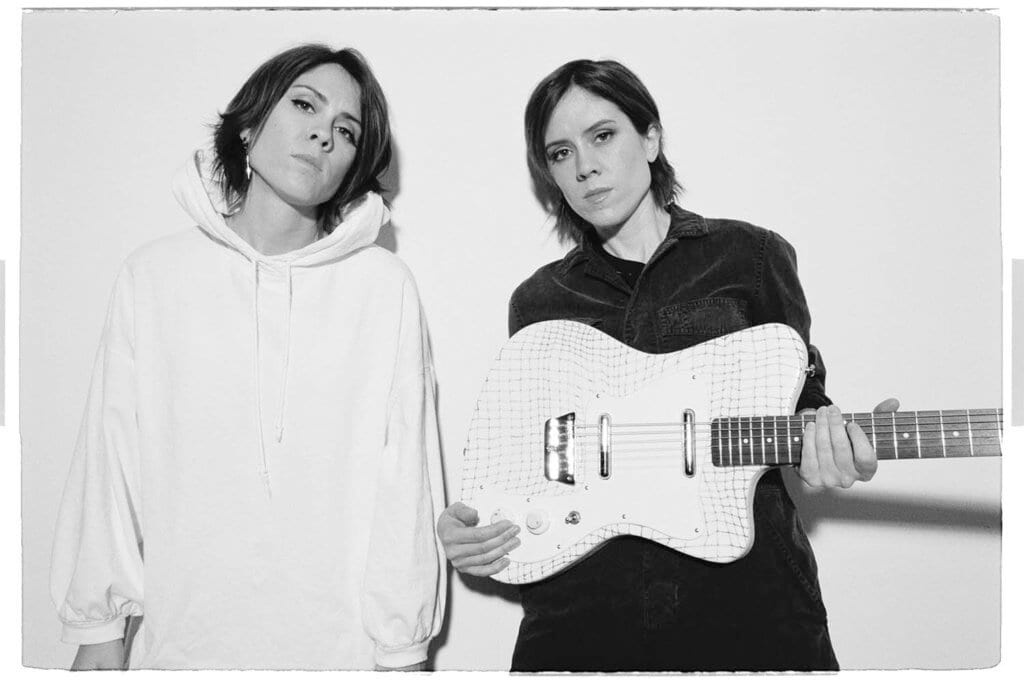
Allison Crutchfield: I was reading about how this record came to be, and it really made me think about when Katie and I started playing music. Sonically, how did these songs evolve?
Sara: The goal was to not overcomplicate things. We’d sit down with each song and ask ourselves, “This is what the song is about—how do we add more story to it?” In some cases, we would steal a great melody or lyrics from another song from the demos. We definitely did a lot of changing and restructuring, but we tried to use materials from the original source. We ended up sending everything in its most basic form to Alex Hope, our producer, because we wanted her fresh perspective.
Allison: That whole process sounds like so much fun—to have songs from high school and have this whole new production toolbox.
Tegan: I want to add that I’m really proud of every record we’ve ever made. This journey we’ve been on for the last six years with these two bigger pop records has been eye-opening, and has challenged us, including the continued support from the original die-hard fans. But the darkside of that is it’s really fucking hard to be in a pop band. Singing to a track is hard. The challenge of making music the way we’ve been making it is that it’s incredibly difficult to just take it down to the bare bones. I started to feel really disconnected from our career at the end of the last record cycle. I’m sure there are many reasons for it, but I didn’t feel like a musician.
Finding these demos, in a way, saved me. Sara and I started rehearsals and were sitting in a room, singing and playing together, for the first time since 2002. I feel like a musician again. I wanted to be in a big pop band and put on a big show, but it’s so important to my soul to remember that I am a musician, that I write songs, that I am a capable and talented singer and performer.
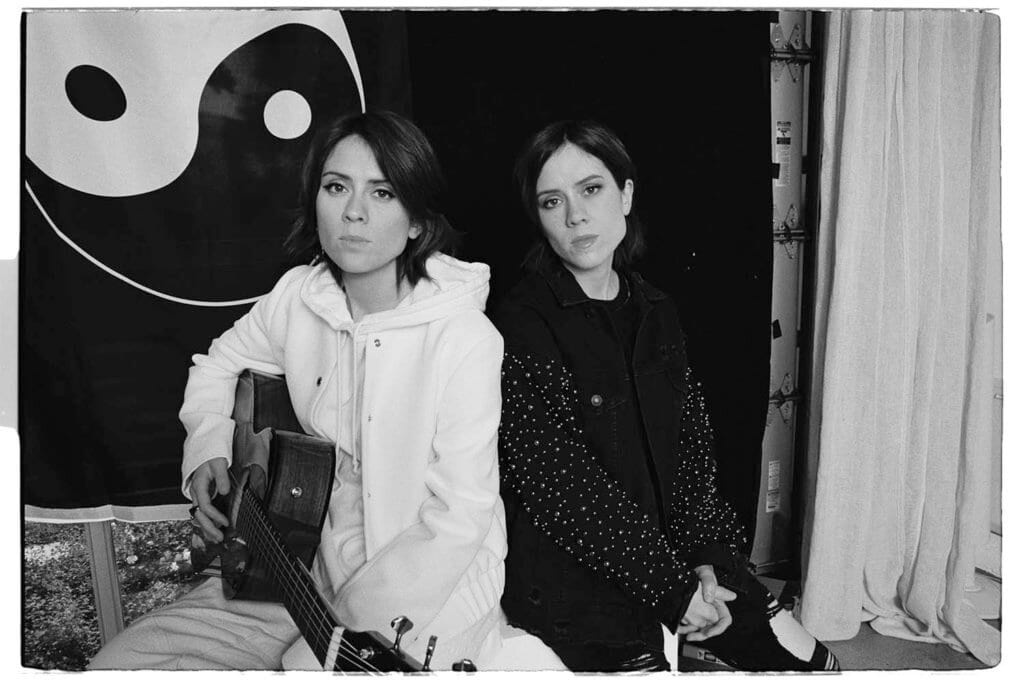
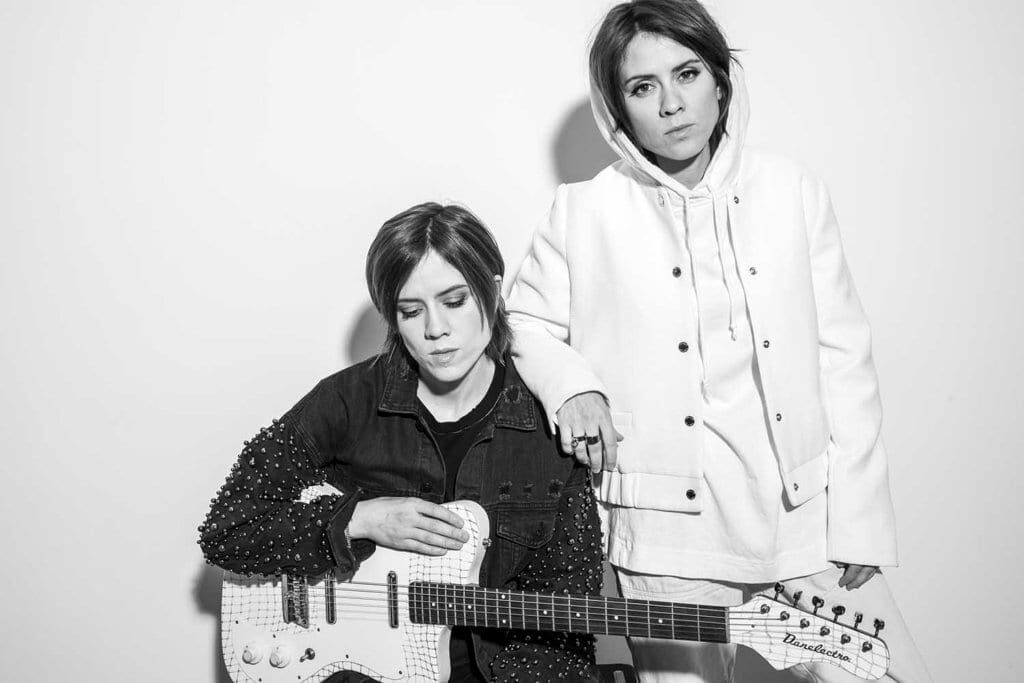
Katie: I really relate to that feeling. And sometimes you get in the routine of playing the songs the same way every single night, and you just need to switch it up.
Tegan: Yes! The freedom to do something different! People are always asking how Sara and I still manage to grow and stay relevant. I think it’s because we’re us. I hate the word banter, but I do think people come to see us play because they want that experience. But the more we locked into production, I stopped feeling like I had the freedom where we could just talk. Some of my favorite times on stage are when Sara goes into a 20 minute rant. [Laughs.]
Katie: That reminds me of when we toured together in 2013. It was my first time touring Europe and also opening for a band that was so big. You both were so warm and cool to me. Every night you invited me to your dressing room with your mom, and we drank champagne and talked. It was so beautiful, and I thought, “This is the life! This is what it’s like to open for a band, and they all treat you this way.” But boy, was I wrong. [Laughs.]
Sara: I love that you had a good experience with us, because we had such a great experience with you. One of the significant shifts in our lives and our career was when we were able to start creating community on the road. When we were a young band opening for people, in most cases we felt like ghosts, and that can be very lonely and isolating. We thought, “Are we just filling time and space, or do these bands care about us?” Over those years, both myself and Tegan decided we don’t want any band that chooses to come on tour with us to feel like they are just there to fill time and space. And while we don’t always have the time and space to be as cool as we were with you, I do feel it’s important that the bands we tour with understand how important we feel their role is.
Katie: You guys gave me this really good advice: you told me that at some point in the band’s history, you were both concerned with the critics and how you were perceived, and you just realized that it’s so important to find your audience and not pander to the “of the moment” thing. At the time, that was so important for me to hear. Is that something you still live by?
Sara: In terms of critics and the next cool thing, I always struggle with that. Success, fame, and good reviews are a drug, and when you get it, it’s hard to deny that it feels good. And when you don’t get it, and other people are getting it, it’s impossible to not feel like you are inadequate. Instead of getting caught up in the web, and feeling like it’s holding me back, I try to channel that competitive energy towards good. If I’m so goddamn ambitious, does it always have to be directed at the same thing? Can I grow and develop other areas of my life that will make me feel valuable whether or not Pitchfork or The New York Times are paying attention to us?
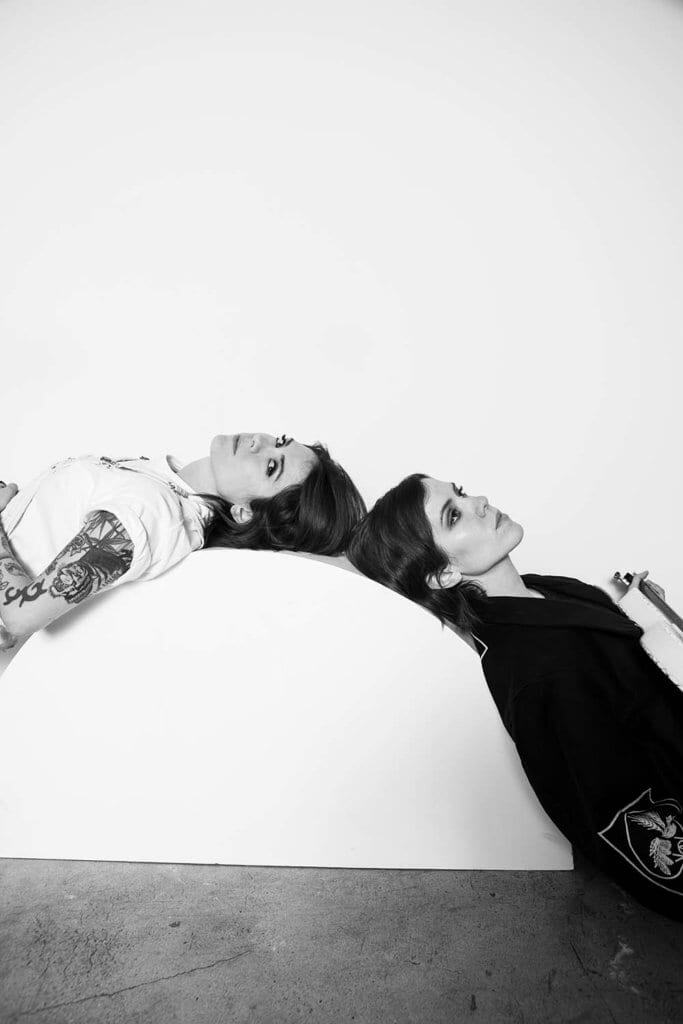

Tegan: I want to add to that and say that I think that the most re-warding thing as an artist is taking risks. If our book comes out and it’s clear no one is like, “They should write another book,” I’m not going to feel bad about myself. We took a risk, we shared our story, there’s a purpose behind it. We wanted to connect to our audience, but an audience outside of our fans: younger people, women, those who live on the fringe, people who want to hear women’s stories that rarely get told. And we did that.
We have to find an important story to tell, and that’s why we decided to write a book rather than a record. I think that’s what has kept us relevant over the last 20 years. We’re not asking how to remain important, or keep our fanbase up, or get Instagram likes. I’ve always asked, “How can we make something we’ve never made before, tell a story that we’ve never told before, and challenge ourselves and our audience to cover new ground?”
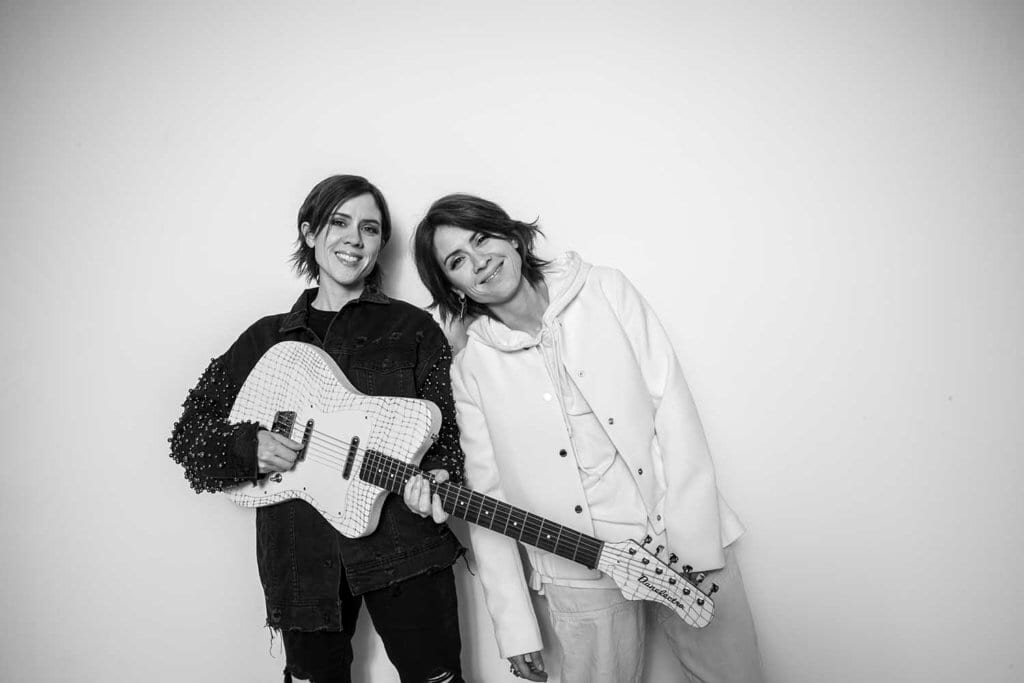

Allison: I’m curious about your process moving the band forward as siblings. Katie and I work a little more independently, but Katie’s approval and words carry more weight with me than those of anyone else. As far as being challenged as artists, as well as being bandmates, what’s the communication like there?
Tegan: I’ve always thought that we’re so cool. I’ve always had this unbelievable confidence in us. Sara is such an incredible writer. For me, if she likes something of mine, I’m so thrilled. She’s my most important listener and my biggest critic. But that enthusiasm hasn’t stopped us from having conflicts. We’ve had to work for 20 years to find balance and allow each other to be unbearable and moody and not give the criticism the other is craving.
Sara: One of the fundamental tensions in our band is that I require more than that. I need more people to listen, more feedback, and I long for a different kind of person than Tegan. It’s not because there’s anything wrong with her feedback. I just have this external desire to be seen by other kinds of artists and critics.
Everyone calls men visionaries and geniuses, and with women it’s like, let’s dissect the producer, the writer, the person that signs them, and the accidental talent they’ve stumbled on that should have been assigned to a man. We worked harder than everybody—that’s why we exist after 25 years. And we’re good. We’re consistently good. And we were visionaries! Look it up in the dictionary!
________
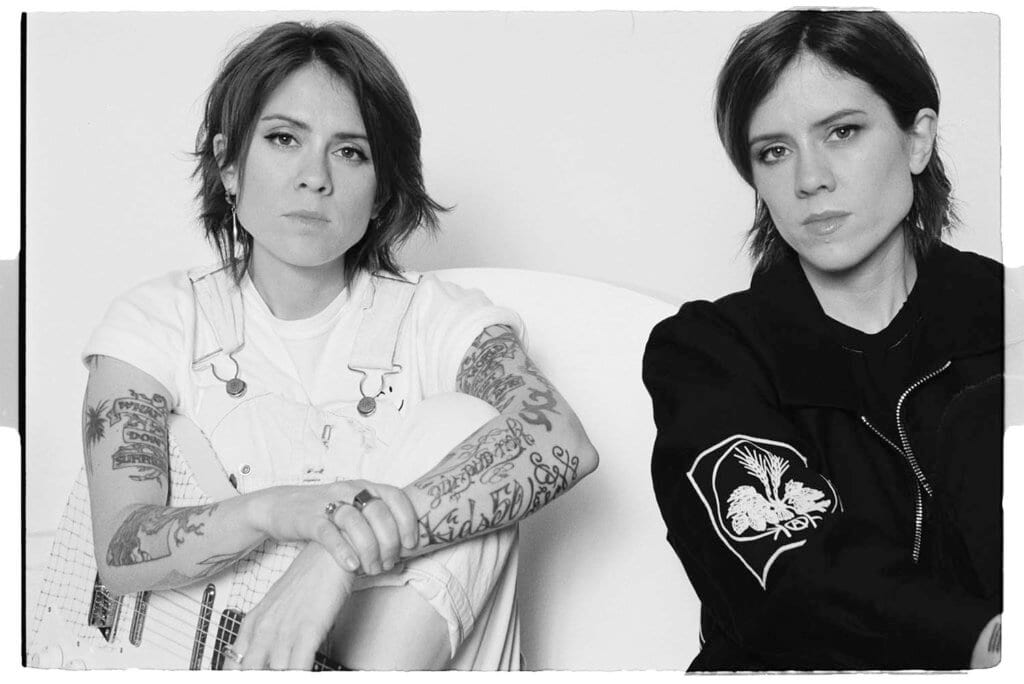

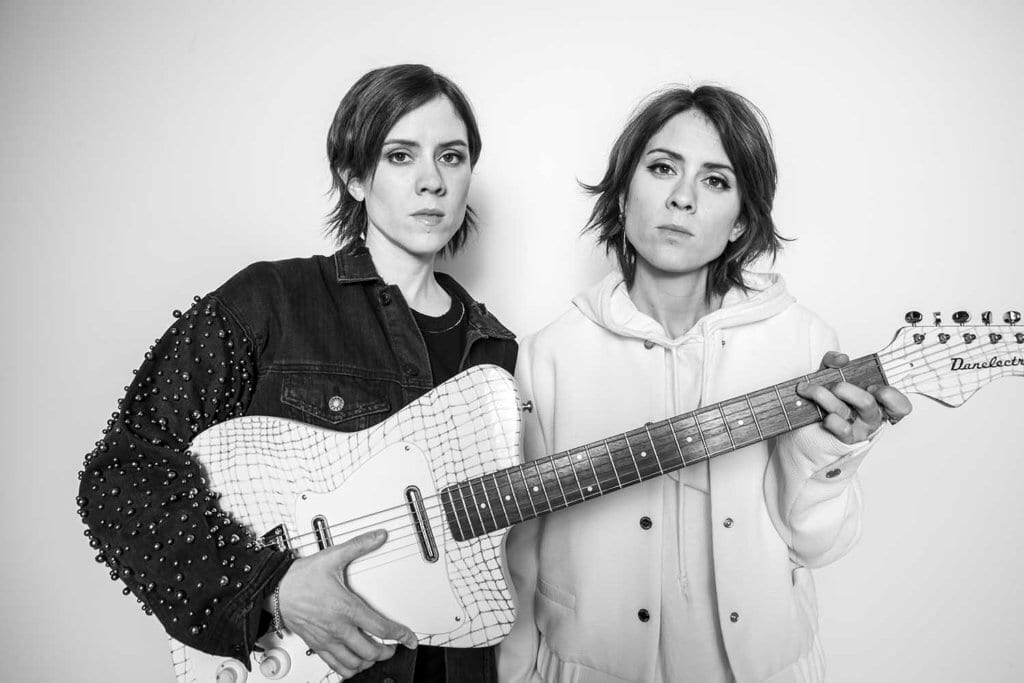

Tegan: What she’s saying is true. One time we were standing near Sleater Kinney, and Sara wouldn’t go and say hello. And I dragged her over. I just don’t care. Sara wants our peers to like us and care and give feedback, but she also won’t ask them.
Sara: But it’s not just musicians. I’ve always had this suspicion that no one really likes us. That’s not Tegan’s fault. It’s a dysfunctional coping strategy that I’ve had because we came into this world famous. Being twins, we were kind of always famous. And that doesn’t always yield positive responses. Whatever I am, good or bad, I am it times two, and that has always stressed me out. When I figured out I was gay, when I had to cope with that, it was already a burden. And then when I found out Tegan was gay, there was no sense of relief. I was like, “Oh great, Tegan’s gay too. So now we’re two gay people.” I wasn’t soothed by it, and I don’t know why. I’ve always wanted external feedback, reassuring there’s something good about us.
Katie: Hearing that, and applying that to a creative dynamic, it makes so much sense. There’s one skeptic, and one hype man.
Sara: I always say, we would have been so insufferable if we were both the same in that way. The other day we were doing press, and Tegan kept calling us visionaries… [Laughs.]
Tegan: We are fucking visionaries!
Sara: I kept saying, “Stop saying that! Let them come up with it!”
Tegan: But that’s the point. We’ve always been polite and nice. Everyone calls men visionaries and geniuses, and with women it’s like, let’s dissect the producer, the writer, the person that signs them, and the accidental talent they’ve stumbled on that should have been assigned to a man. We worked harder than everybody—that’s why we exist after 25 years. And we’re good. We’re consistently good. And we were visionaries! Look it up in the dictionary!
Katie: I think She Shreds should put that on the cover…
Tegan: Fuck yeah! We’re Tegan and Sara… VISIONARIES.
Katie: As a band that pushes the envelope, I wonder, was there ever a moment when one of you wanted to take a risk, and the other wasn’t into it?
Sara: Tegan definitely has pushed me to do things that I wouldn’t have done. I was more satisfied at drilling us down into a niche or cult status—that felt very comfortable to me. And then when we got offered to tour with The Killers or open for Paramore, I was just like, “Why? What are we trying to achieve?” And Tegan was like, “Success and getting more fans.” And I was like, “Do we want that?” And Tegan was like, “Fuck yeah we want that.”
Katie: You guys are on the pulse, and engaged with what’s happening with music right now. I’m curious what you’re listening to.
Tegan: There’s so much cool stuff happening in the mainstream, a lot of challenges to the norm. In the past, I would have felt threatened by too many women, queer people, or alternative voices all putting records out at the same time, that there was no room for us. And now there’s so much room, and that feels thrilling. I’m thinking about Shura, Vagabon, MUNA, Hayley Kiyoko, Nimmo, IDER, Sleater Kinney—and the fact that everyone is putting records out this year. I feel rich to live in a time that has all of these diverse voices of different genres. I felt so lonely for so much of our career, and I felt the pressure—we were the ones that got to be popular, and so we had represent everyone. Or we were totally obscure and ignored because someone else had the baton. And now it feels like they’ve broken the baton into thousands of pieces, and we all get a piece.



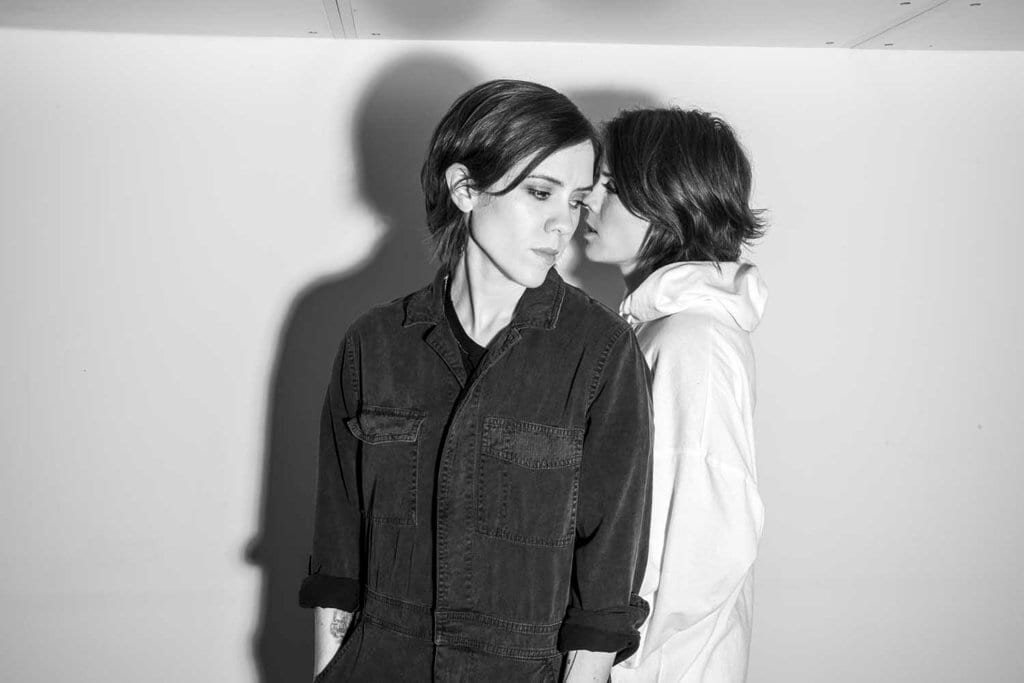

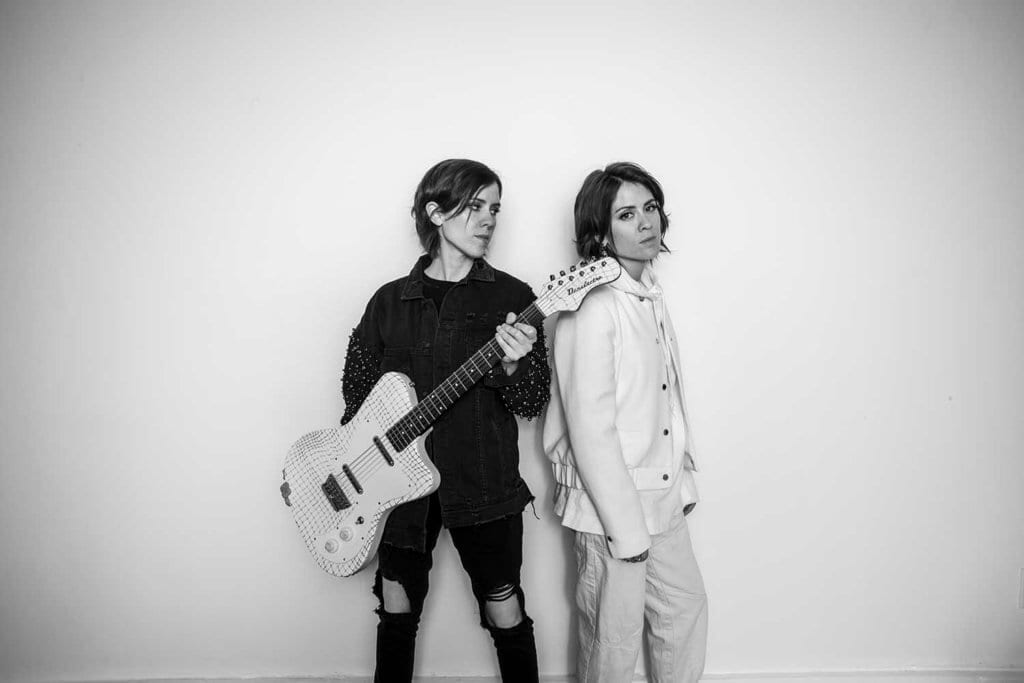



Allison Crutchfield is a songwriter and musician who plays in the indie rock band Swearin' and her solo project.
Katie Crutchfield is a singer-songwriter who performs as Waxahatchee. Her new album, Saint Cloud, will be released on March 27th on Merge Records. Watch the video for the second single, "Lilacs."
You May Also Like
No related posts
No related posts
More posts
-
By: Cynthia Schemmer
-
By: Jenny Lim
-
By: Fabi Reyna
-
By: Cheri Amour
-
By: Stephanie Mendez
-
By: Cynthia Schemmer
-
By: Steph Wong Ken
-
By: Bean Tupou
-
By: Eleanor Linafelt
-
By: Ivy Gray-Klein
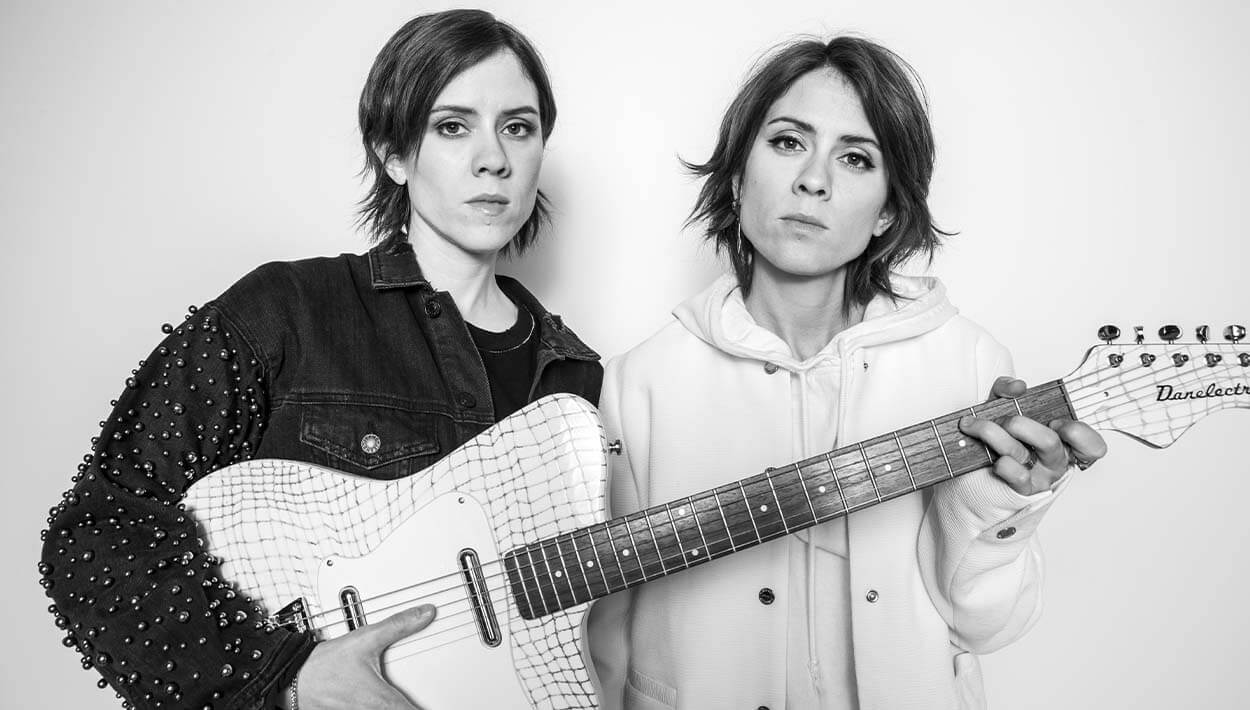
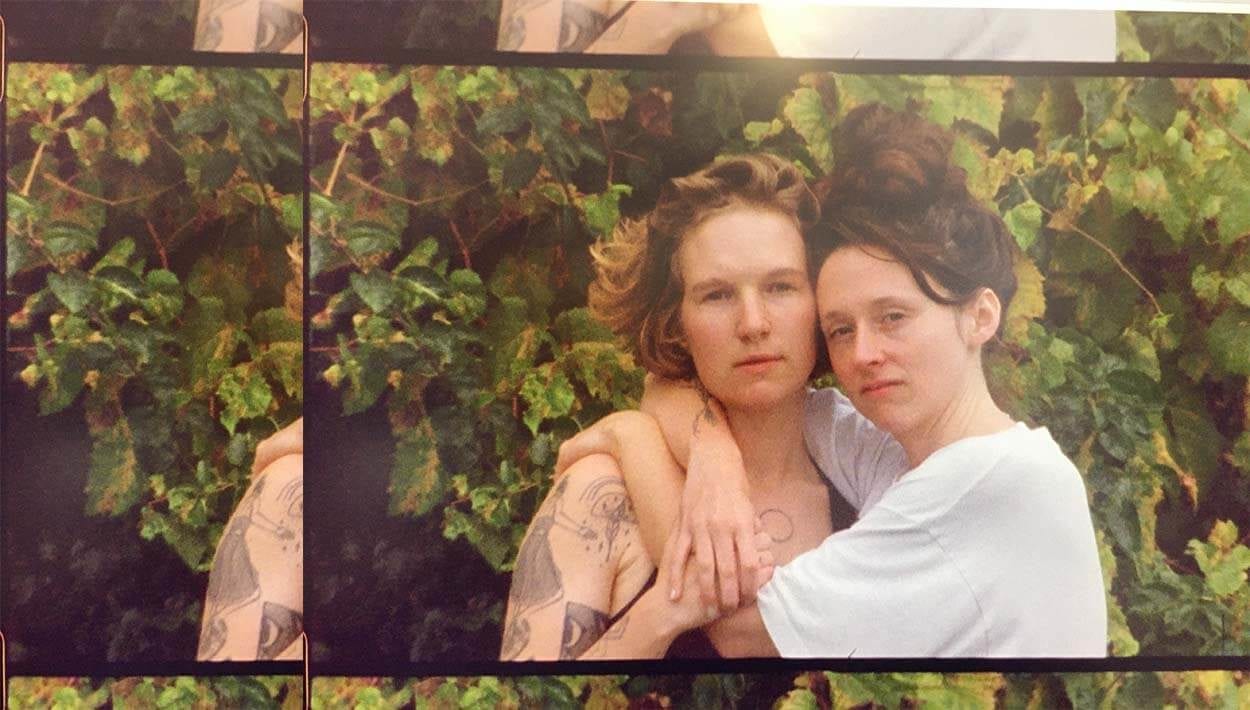
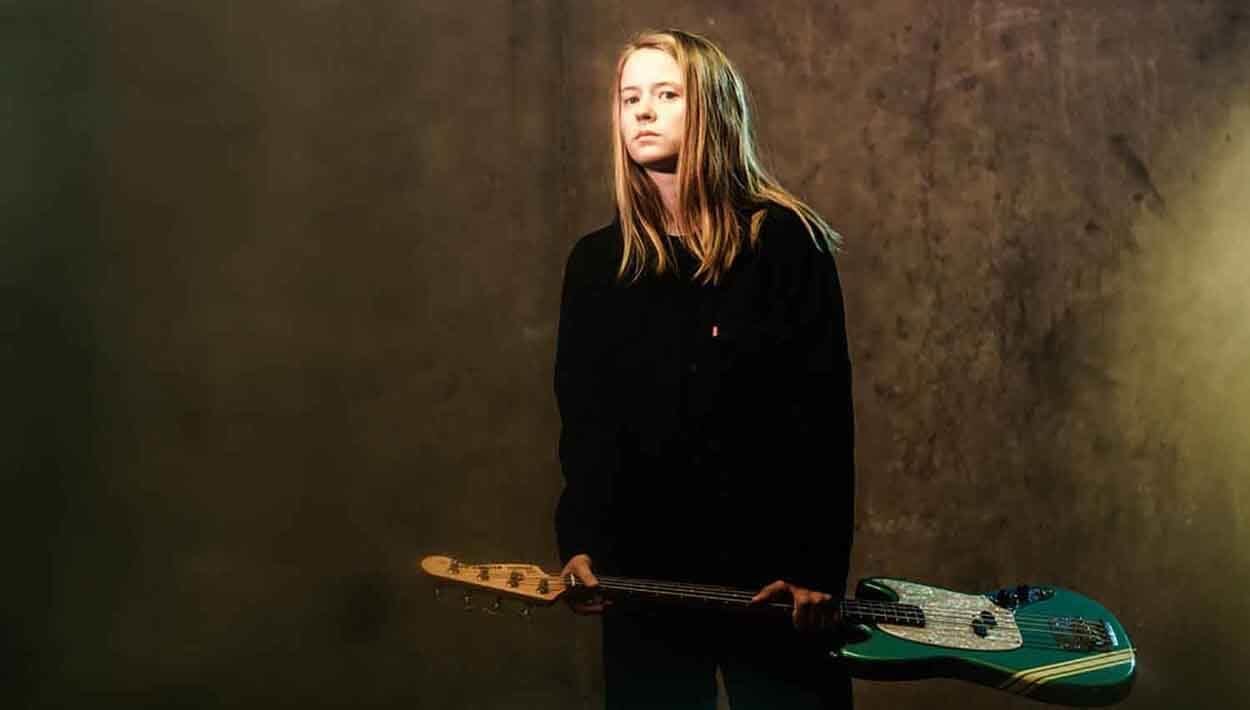
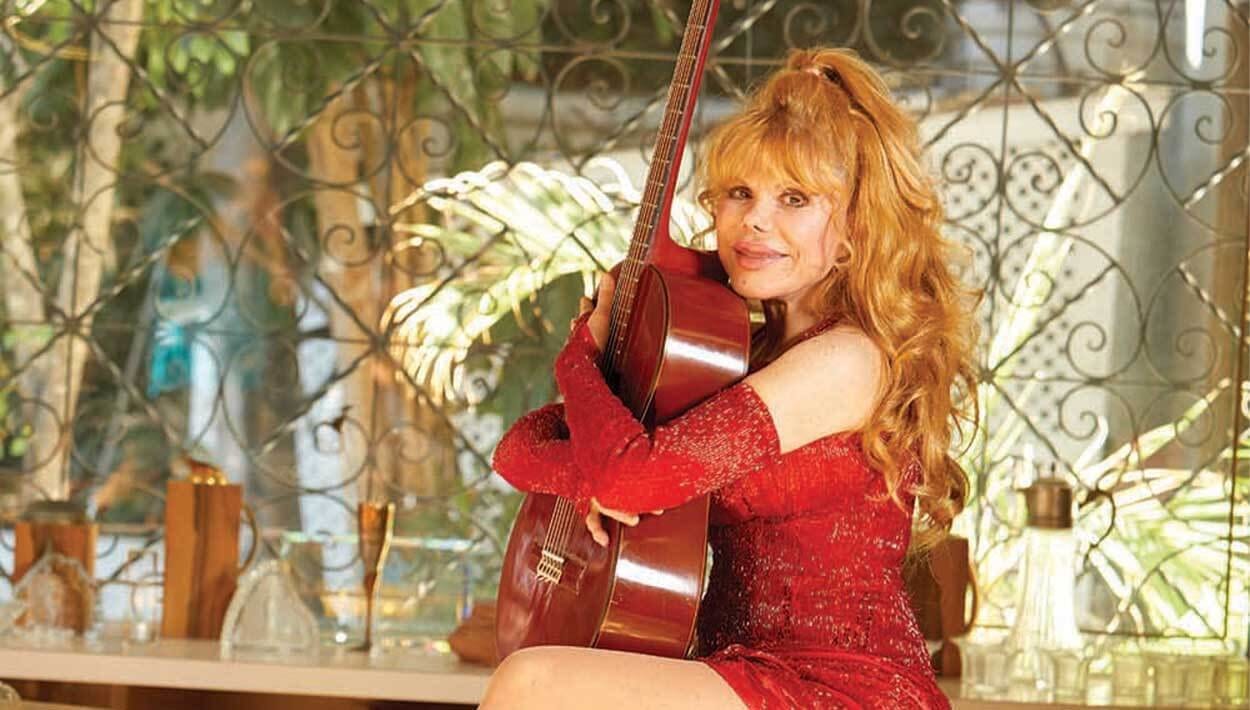
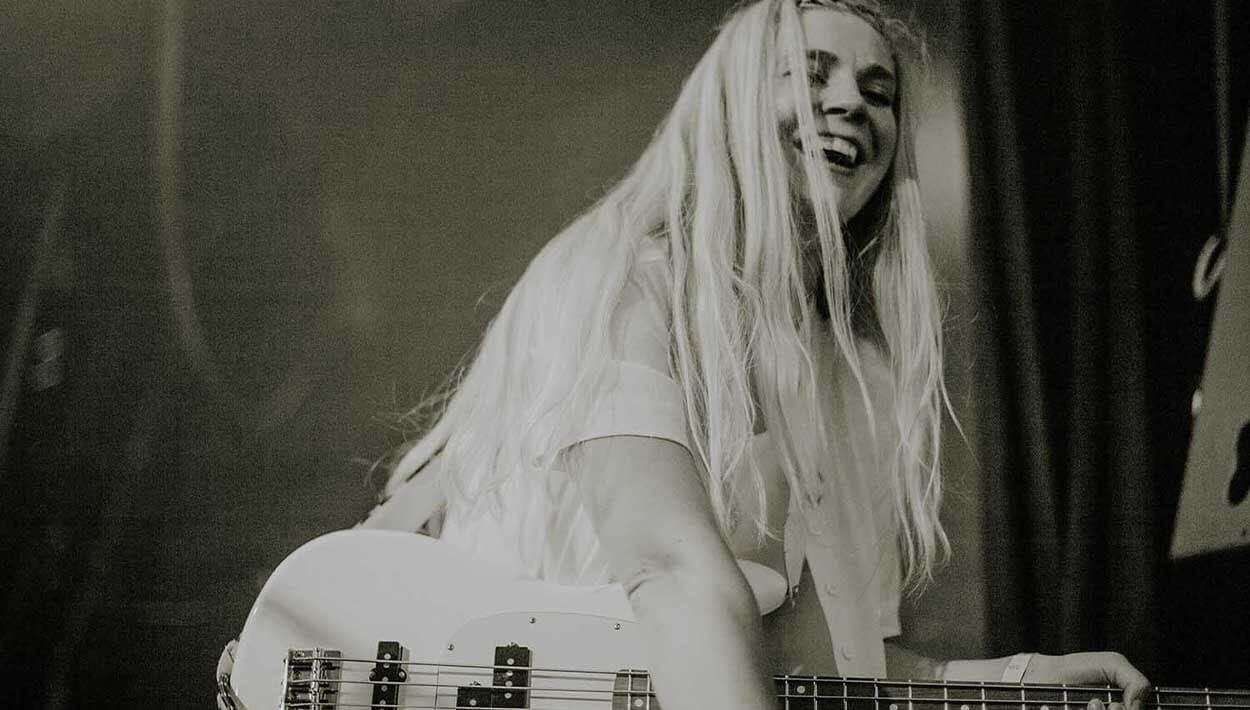
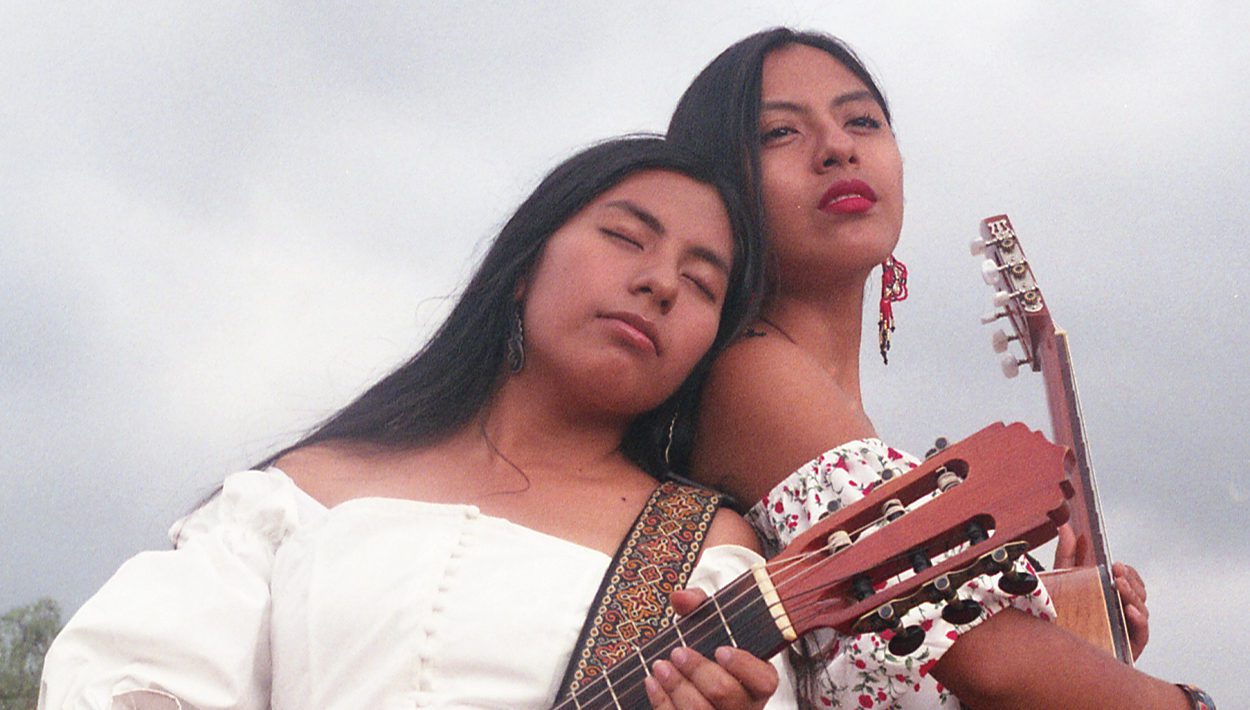
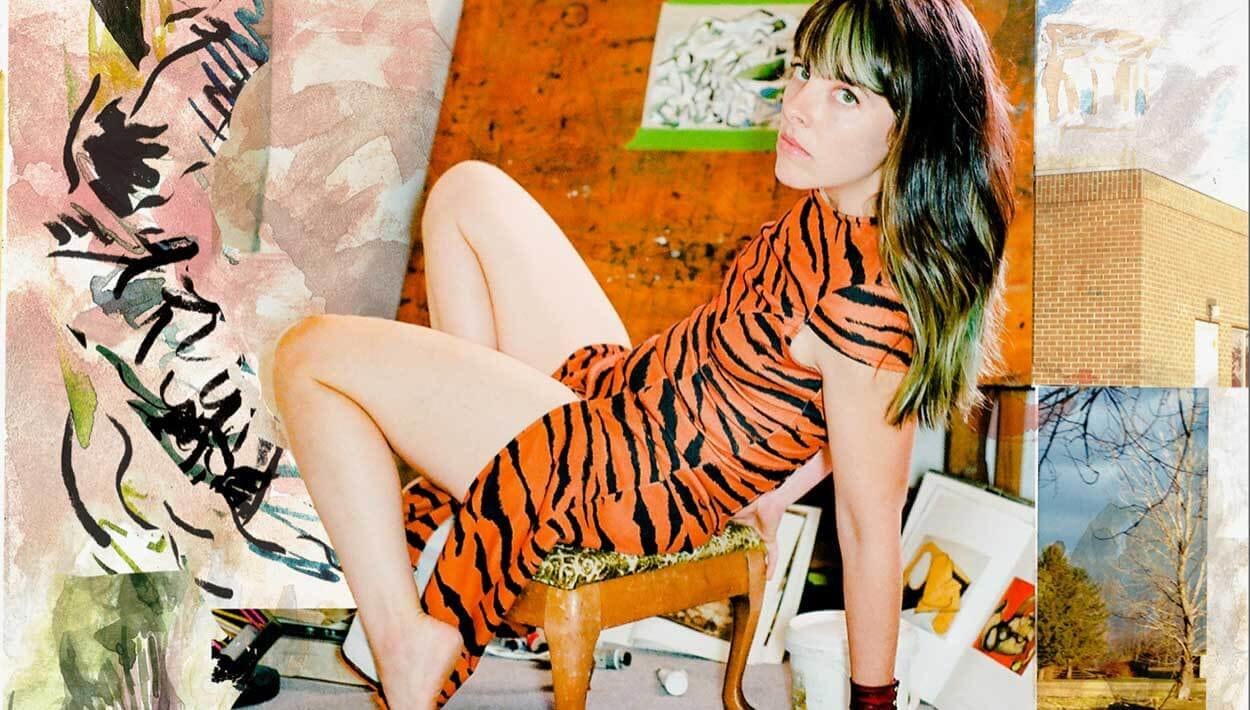
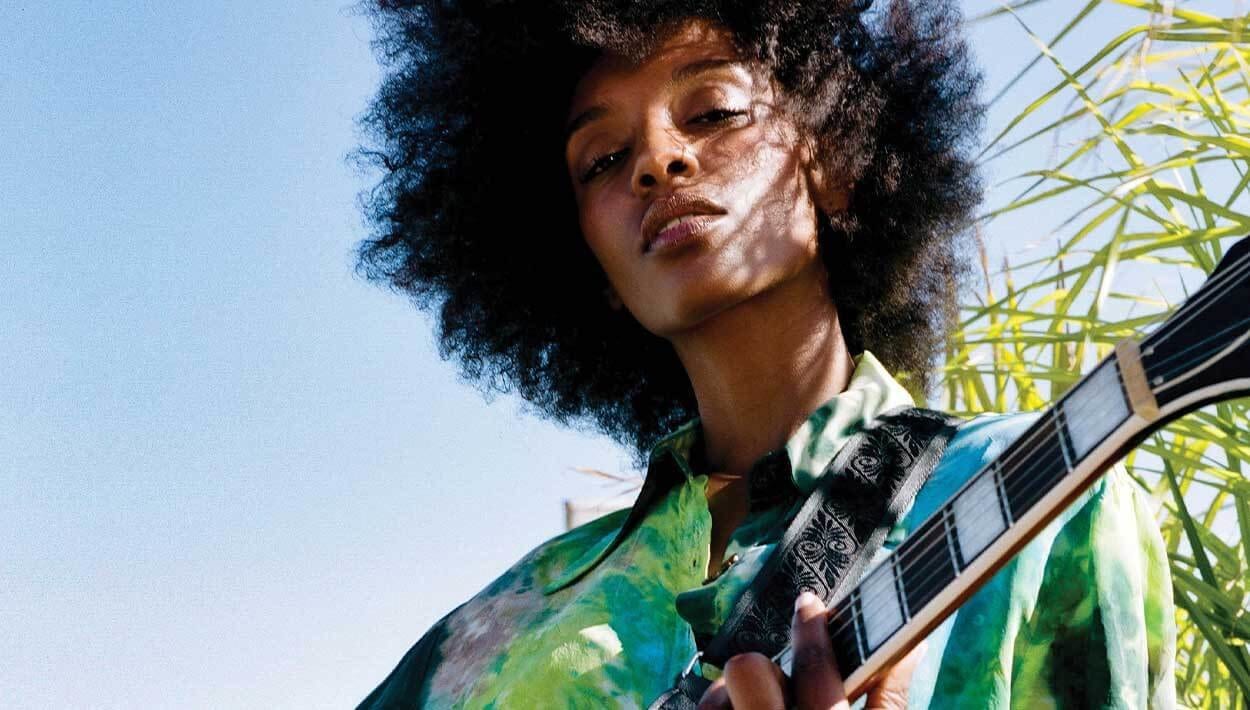
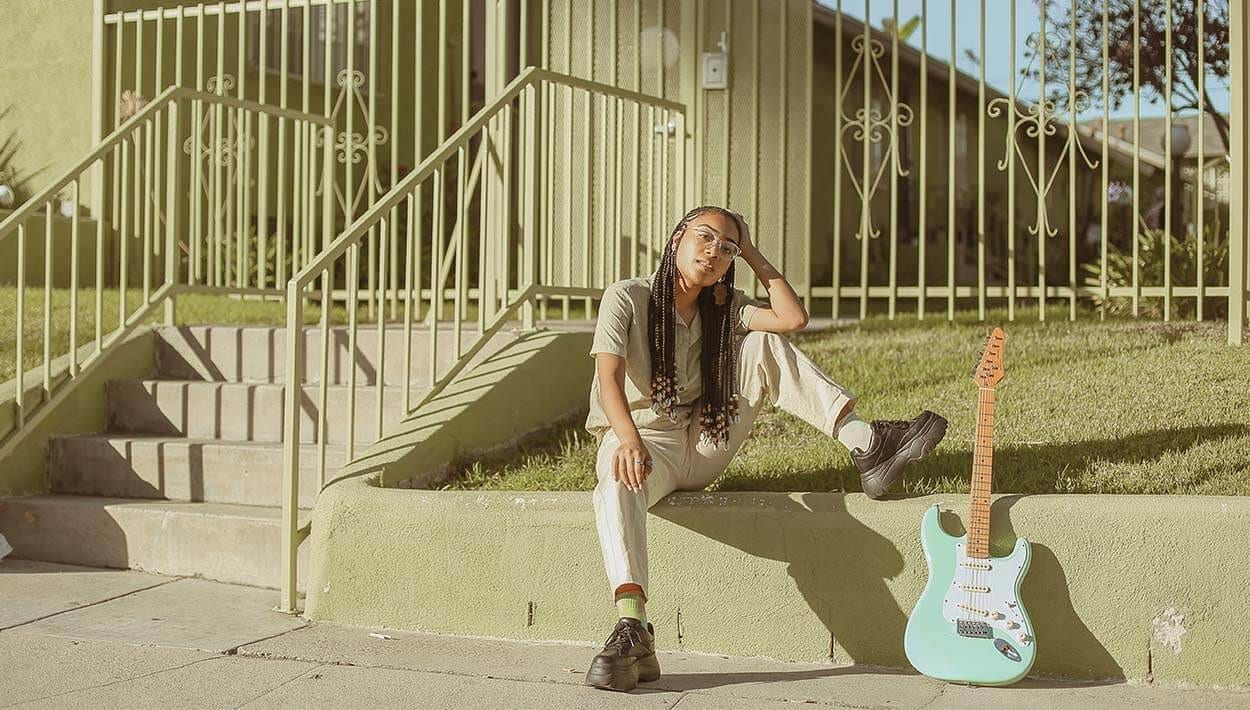
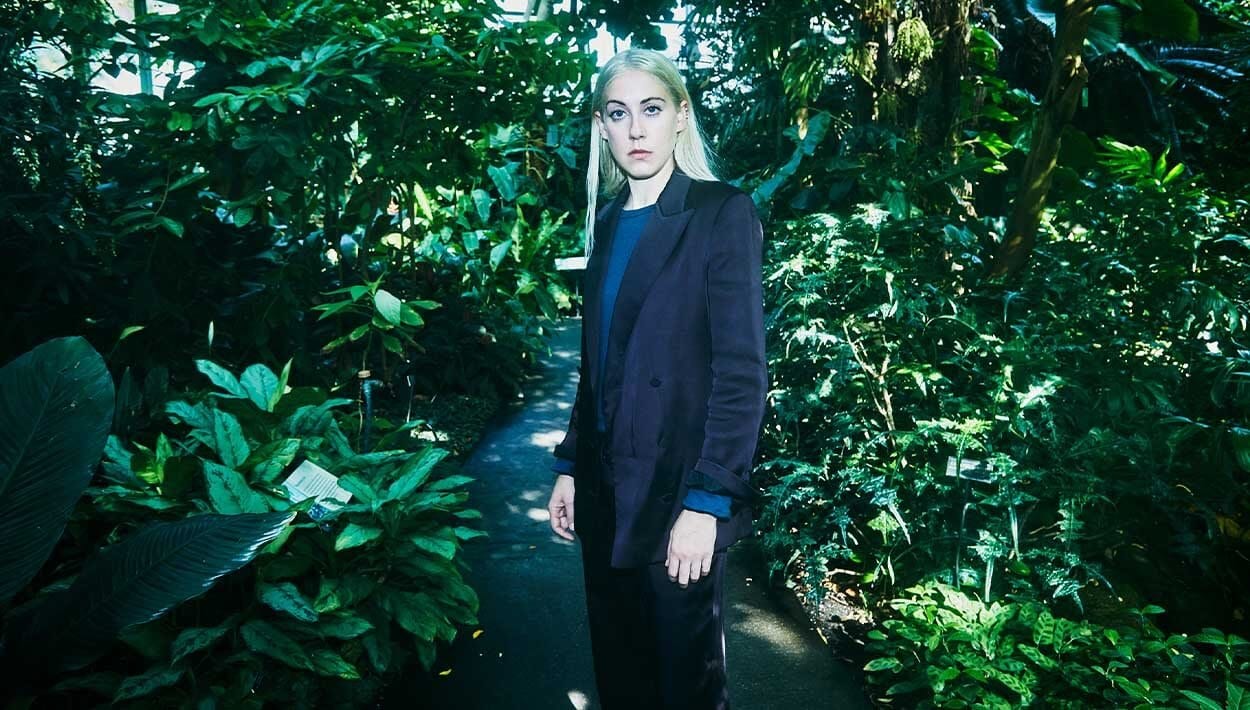
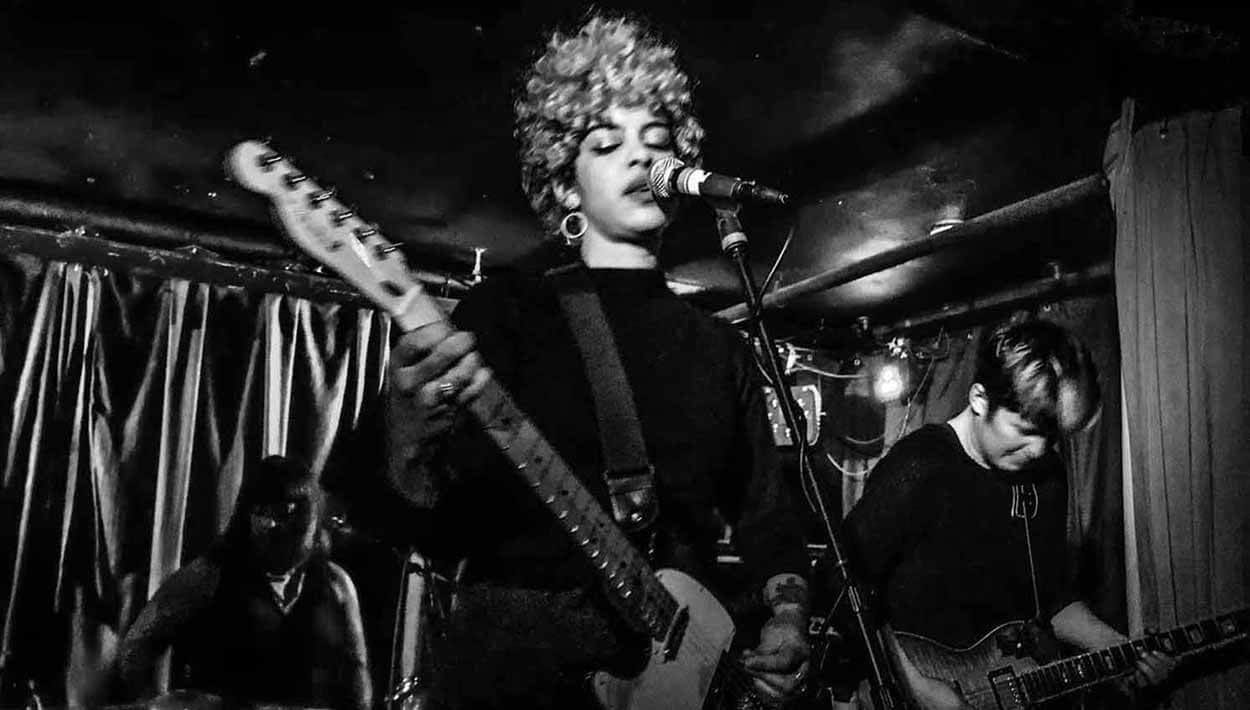


Comments
No one can deny the talent of the two. There are very good works that I listen to many times. Slope 2
Comment by AzuraJobs on September 13, 2022 at 8:37 pmI value the information you offer. As you have in the past, I hope you’ll continue to offer as many fantastic postings. If you are finding games, you can try geometry dash meltdown
Comment by Jaylan Clure on April 26, 2023 at 1:57 am